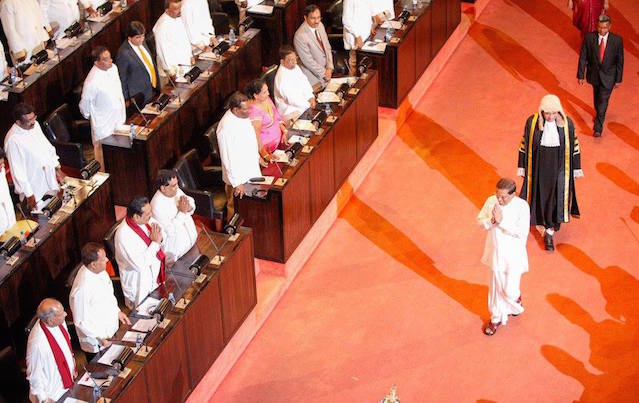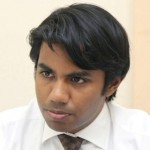A Brief Colonial History Of Ceylon(SriLanka)
Sri Lanka: One Island Two Nations
A Brief Colonial History Of Ceylon(SriLanka)
Sri Lanka: One Island Two Nations
(Full Story)
Search This Blog
Back to 500BC.
==========================
Thiranjala Weerasinghe sj.- One Island Two Nations
?????????????????????????????????????????????????Tuesday, July 31, 2018
Economic Crime & The P118 Of Sri Lanka


“If the top beam is askew, the bottom beams will be crooked.” ~ Chinese proverb
There is a plague in the streets of Sri Lanka. If this plague has not
entered your door steps, your family will still pay an indirect price.
Most of us were aware of what ruffled the normal tenor of our lives but
had no idea how to fight the plague. The plague is known as
“Corruption”, and it might be inimical to the stability and integrity of
the economy, which now threatens the entire nation.
President Sirisena explained that he is not in a position to open the
newly built hospital in Hambantota, which he laid the foundation for
several years ago when he was Minister of health. “The building is
completed but the hospital equipments has gone missing and all funding
has been utilized, certain people who where after my term at the
Ministry are directly responsible”, said President Sirisena to the
Director General of Bribery and the Key Note speaker Prof. Jayadeva
Uyangoda after a discussion on fighting corruption in Colombo.
Whoever is responsible for robbing public goods should be arrested
regardless of their political hierarchy or affiliation. If the powerful
(top beam) in society could commit economic crime of this nature, one
may wonder how we create a society free of corruption, and instill such
values within the entire community. The President will need to take
strict measures to arrest the culprits and strengthen weak government
institutions, in order to fight corruption.
According to Auditor General Gamini Wijesinghe, “More than half the
state officials would be in jail by now if they were dealt with in the
manner in which former presidential secretary Mr.Weeratunga was dealt
with and sentenced to prison on charges of misusing State funds”. Due to
the large scale corruption, Auditor General suggested the new Audit
Bill as a solution to ensure financial discipline in the State sector
under the 19th Amendment to the Constitution. Such measures should be
given utmost government support and top priority, especially considering
the events which unfolded in the recent past. Passing the Audit Bill is
not sufficient, but getting it implemented should be the key, explains
former Auditor General Mayadunna.
Economic crime such as leasing the entire fishery harbour in Modara
(Mutwal) Colombo a few years ago by a powerful Minister for a nominal
fee was never investigated by the Bribery Commission. It is the duty of
the commission to carry out investigation of all crimes, regardless of
the culprit’s social standing. According to Anura Kumara Dissanayake,
leader of the JVP, “The Bribery Commission has summoned him on two
occasions to appear before it to inquire into the harbour tender, but
the Minister had not gone there. Instead he influenced the President to
remove the Director General of the Bribery Commission”. The rule of law
should apply equally to all citizens.
According to Prof. Jayadeva Uyangoda, a new “Perpetual class” has emerged in the Sri Lankan society. This constitutes a new
rich middle class, who are much more sophisticated when it comes to
influencing politicians, political parties and campaign funding. There
are evident differences between this new rich middle class and past
businessmen. This Perpetual class exercises control and influence over
ministers, high ranking officials and decision making of the state using
their financial power. Prof. Uyangoda further explains that there is a
need and it’s worth researching to understand the influence of such new
middle class in our society.
The practice of political funding and lobbying has
changed in many societies including in the United States. As Francis
Fukuyama rightly identifies in his book ‘Political Order and Political
Decay’ that there were only 175 lobbying firms in 1971, in 1981 number
reached 2500 and by 2013 a whopping 12,000 firms spent $3.2billion on
lobbying, according to Fukuyama “its these firms that distort American
public policy across many different areas”.

